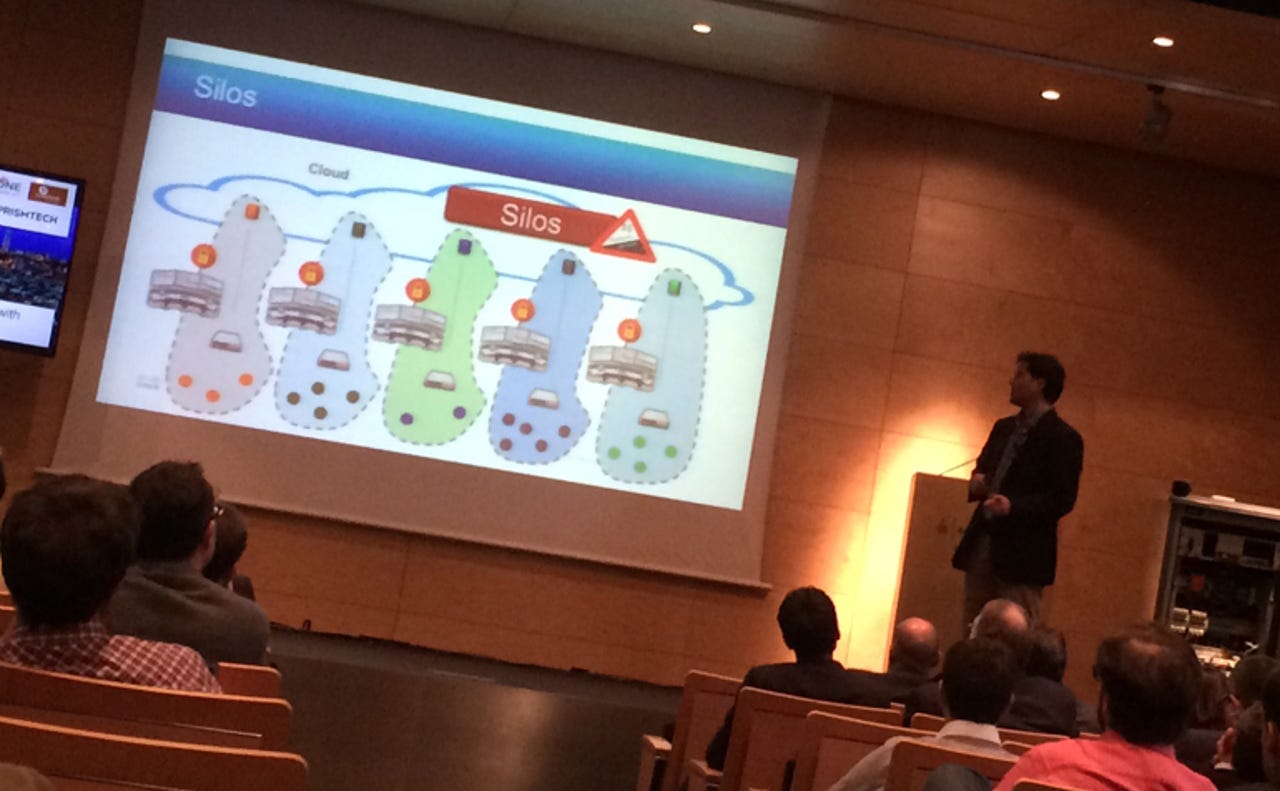IoT beneath the city streets: Barcelona tests out open platform for smart services

Barcelona has demoed the platform that's designed to address the challenge of managing isolated silos of urban data.
Wander round the streets of Barcelona and you'll probably spot various grey, unsightly cabinets housing a range of technologies that could be controlling anything from traffic and lighting to parking and waste.
The city is increasingly covered in sensors, supposedly to become smarter and serve its citizens more efficiently. Yet, all these devices are disconnected from each other, and so is the data they generate.
To solve the problem of consolidating and centrally managing all infrastructure, data, and services, Barcelona has developed and tested what is designed to be an "open, flexible, scalable and secure" platform accessed through a simple browser-based remote dashboard.
Read this
This new platform, implemented over the past six months jointly by Cisco, the Barcelona City Council, the Barcelona Supercomputing Center, and technology and academia partners such as Schneider Electric, the Technical University of Catalonia, and i2cat.
The platform addresses the challenge of isolated silos by deploying a fabric of nodes at the network edge, providing data processing, analysis, and security close to the connected sensors and objects in the streets, and intelligently connecting them to a backend platform in the cloud.
According to Cisco Spain general director José Petisco, this city services pilot platform meets the challenges of the Internet of Things by simplifying, accelerating, and dramatically reducing the cost of deploying new services.
"It uses virtualization capabilities at the edge, scalable orchestration, proper automation, and analytics at multiple levels," he said.
Moreover, it may also help create new business models, potentially attracting entrepreneurship and fostering innovation.
During a demo in Barcelona, Petisco said some 50 billion devices will be connected worldwide to the internet by 2020 - and that 40 percent of all data will come from sensors and smart devices.
By then, a smart city with one million inhabitants will generate more than 180 million gigabytes of data per day. A platform like the one developed in Barcelona might be way to reduce the complexity, costs, operations, and time required for deploying urban applications.
Barcelona City Council Municipal Computing Institute managing director Francisco Rodríguez echoed this sentiment by stressing that "close collaboration among public and private companies, academia, research bodies and citizens through an open platform is key to solving urban problems".
"This project is an open cooperation and innovation reference effort, which will serve as a model for other communities," he said. However, he acknowledged, "it will take some months" to deploy it in Barcelona because it also requires "an internal management shift" in the city council.
Moreover, Barcelona's strategy is still being defined after Barcelona en Comú Ada Colau's appointment as mayor following last May's local elections.
During the Smart City Expo World Congress, held in the Catalan capital late last year, Barcelona's first deputy mayor with responsibility for work, economy, and strategic planning, Gerardo Pisarello, stressed the need to "reorientate the policies of the city towards data openness, strengthening of democracy, and environmental sustainability, reduction of inequalities and progress for all".
But no concrete plans have been announced yet, apart from the idea of boosting Fab Labs in the city.
Yet, the city council has not shelved projects signed with multinational companies during the previous government. So Cisco's Global Internet of Everything Innovation Center, aiming to provide a focus for research, technological development and new market opportunities related to smart cities, is still underway.
